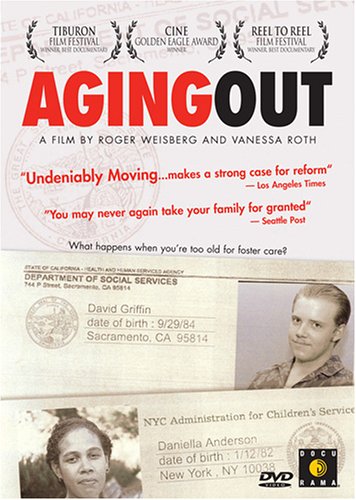Not Rated
While most of the half million children in the U.S. foster-care system will eventually be adopted or reunited with their birth families, each year some 20,000 teens “age out” of the system that’s been caring for them. A statistically large number of these young adults end up on welfare or in jail.
With his latest work, Aging Out, award-winning documentarian Roger Weisberg puts faces on these alarming figures. The 90-minute documentary follows three young adults as they make their way beyond foster care with meager financial resources and no family connections, support, or guidance.
Three Lives, Three Pathways
As his segment opens, we see David spackling a wall he punched at his twentieth foster home. Years ago, he had to leave his sister and a loving home because their foster father there couldn’t handle him. The 18-year-old admits to episodes of violence and drug binges, yet holds onto the dream of a new beginning in a faraway place. We meet Risa as she’s getting ready for her senior prom. The first in her family to graduate from high school, she makes her way to California with $8,000 in college scholarships, but runs into problems when she finds she needs a guarantor to sign a lease: As a foster child, she has no one to turn to. Daniella, 20, is expecting her first child. Using all of their small savings, she and the baby’s father, Veasna, move in together. Although Veasna finds a part-time job, the couple soon realizes that the only way to make ends meet is through public assistance, which feels contrary to their coveted emancipation.
Continuing the Conversation
While the film itself does not offer answers, its funder, the Jim Casey Youth Opportunities Initiative, wants it to be a catalyst for discussion.
“Even with the best of services, it’s enormously difficult for anyone to function as a self-sufficient adult at 18,” says Weisberg, “and yet, we expect these foster kids miraculously to do so.”



